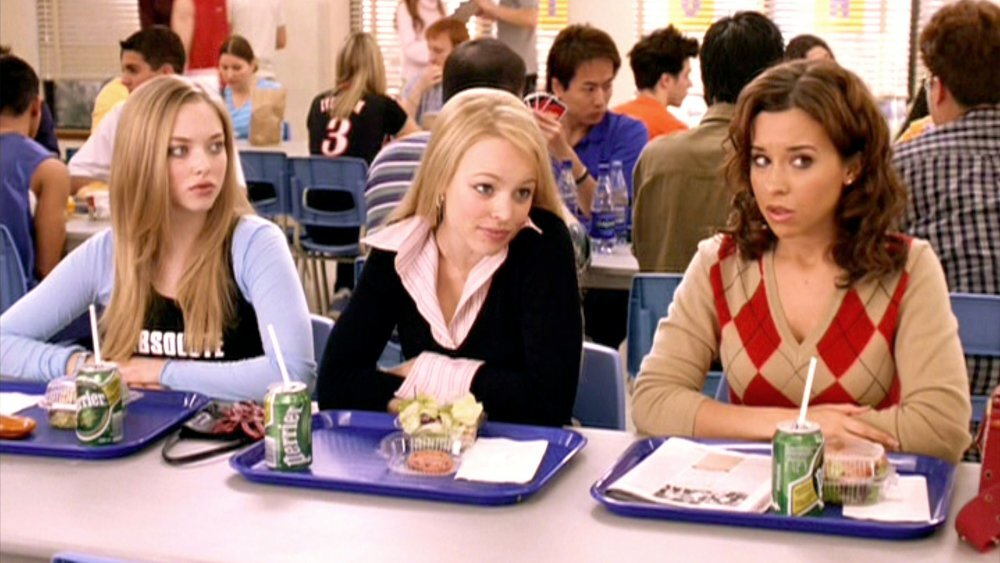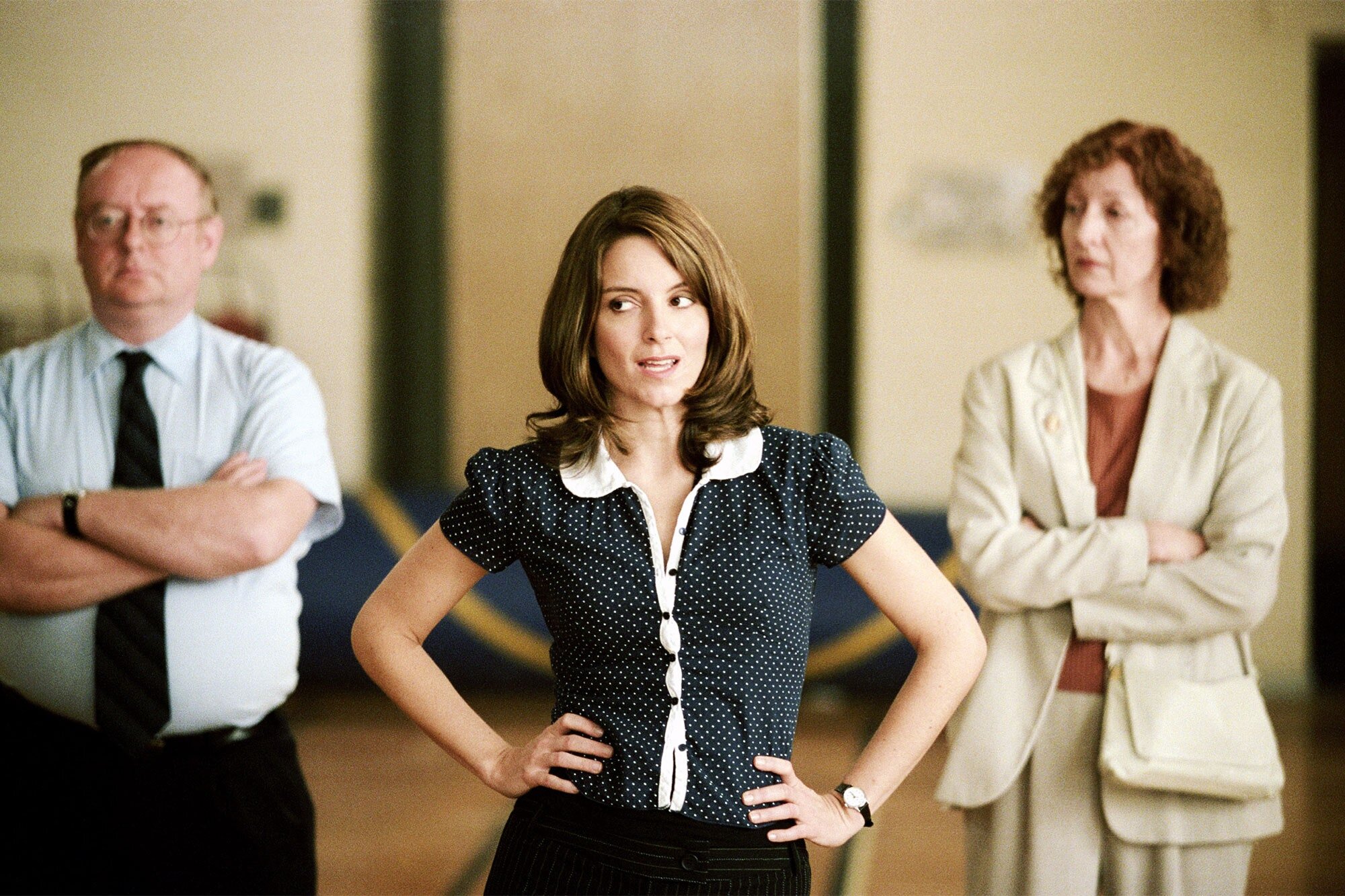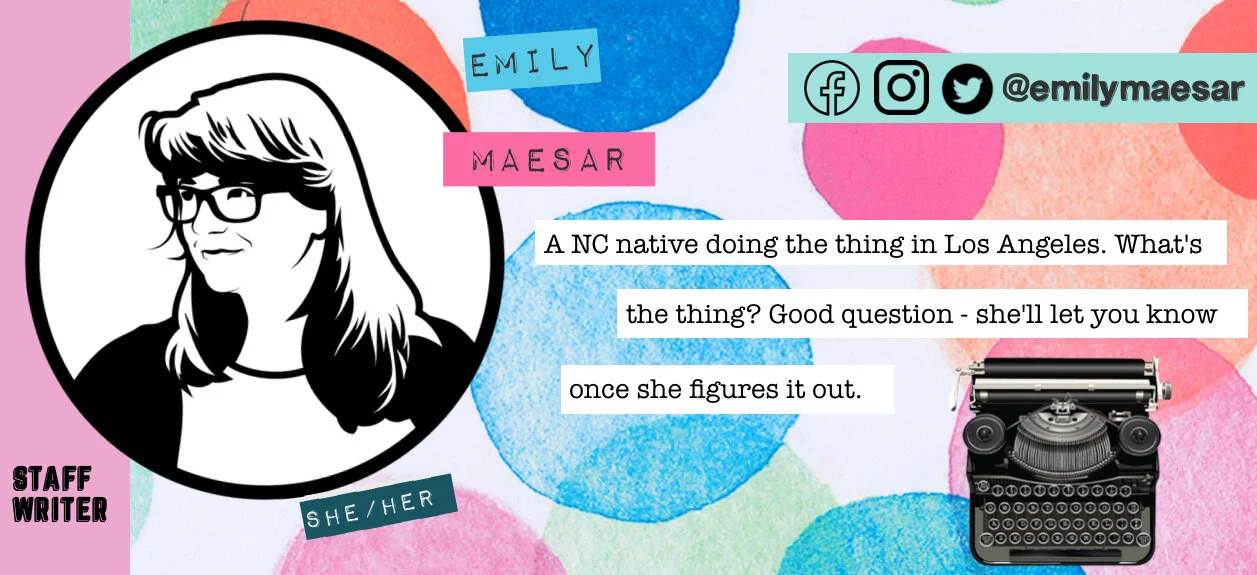You Can’t Sit With Us: Coming of Age
by Emily Maesar, Staff Writer
You know… I have no idea if entering high school, or realizing you have to be there until you graduate, is the more traumatic experience.
Welcome back to You Can’t Sit with Us where we’ll be talking about “Coming of Age” films this month - but the early kind. See, when thinking about this series, and how I wanted to organize the films, I decided that I would look at the genres in teen films. That being able to compare and contrast films roughly about the same thing, or that have a similar vibe, would be a good anchor point for the columns.
However, as I looked at all the films I knew I wanted to cover, it became obvious that there are two very distinct types of “coming of age” stories often told in these flicks. The ones where we enter high school, and the ones where we leave it behind. This month we’re talking about the former, but we’ll get to the latter before the year ends.
Entering high school is formative, which might be the understatement of the year. However, I was kind of surprised to see that there are so few films about this experience compared to it’s graduation counterpart. But maybe I’m the only one who is shocked by this?
As someone with a rough, kinda weird, transition between middle school and high school, these few precious films are some of my favorites. This period of time is so filled to the brim with super interesting stories, ones that often change people’s entire life trajectories.
And yet? Because the characters would be between the ages of 12 and 14, there’s not a real way to cast older actors and have it be believable. Our suspension of disbelief doesn’t tend to go out that far. In the mad dash to explore burgeoning adulthood through teenagers, it often seems like stories that aren’t about sex, relationships, or drugs tend to get glossed over.
So, let’s first talk about the film that somehow gets the best of both worlds (debatable if you actually want that): Mean Girls. It’s the film that I pulled the title of the entire series from, and because it’s ever quotable (I think that’s a pretty big necessity for the longevity of a teen film), the Tina Fey penned and Mark Waters directed flick sits pretty solidly in the American Teen canon. But for the sake of being thorough, here’s a quick rundown of the plot.
Because her parents are research zoologists, Cady Heron (Lindsay Lohan) has spent most of her life in Africa (which county? This film does not care, which is not surprising given Fey’s history of casual racism). When she’s 16, her family moves back to the US and she’s forced into the public education system. “Hello high school,” as it were.
Since Cady was homeschooled for her entire life, she doesn’t really know how to navigate this strange new world. Her first friends come in the form of “Art Freaks” Janis Ian (Lizzy Caplan) and Damian Leigh (Daniel Franzese), who show her the ropes at her new school. Until, that is, Queen Bee Regina George (Rachel McAdams), invites Cady to sit with her and the rest of the “Plastics” one day at lunch. When Janis convinces Cady to mess with Regina’s life in an act of revenge, the results threaten to consume and destroy the social hierarchy at the school.
I love Mean Girls, but I think this film more than any of the others I’m going to be talking about (at least as I glance over the list of films for the rest of the year and hedge my bets) is the one that personifies the idea of adults making films about teens. It’s unavoidable, for sure, but the results come in two forms. Either it’s adults who want to relive their teen years… or it’s what Mean Girls is: “Here’s how teenagers are. Trust me, I checked.”
The film is based, in part, on Rosalind Wiseman’s non-fiction book for parents called Queen Bees and Wannabes. Tina Fey, who also stars in the film as Cady’s math teach Ms. Norbury, thought it would make a good teen comedy. And it’s not like she was wrong. Mean Girls became a true pop culture phenomenon.
But rewatching it almost twenty years later (hate that math, but okay), it certainly feels like a film about teens… made by adults. Some of it rings true and it’s purposefully heartfelt in all the right ways, with a nice lesson at the end. However, it’s less a true representation of teen culture in the early ots, than it is a representation of what adults feared teen culture was at that time. It’s actually kind of clever that Fey has Cady start as a Junior, but with Freshmen sensibilities, because she was able to fully create this funhouse mirror of the high school experience from scratch. It’s recognizable, but it’s a bit out of whack. But, hey, at least it’s very funny and endlessly quotable.
Do you know what else is endlessly quotable? The comedy of Bo Burnham. When he was 16, Burnham posted some comedy songs on YouTube (it was 2006 and the platform was basically brand new), and he was a hit. Launched into comedy stardom, his first Comedy Central special aired in early 2009 before he turned 20. It was then, when I was 18 and about to graduate from high school, that I first saw the self-titled special: Bo Burnham. I was in a depression spiral then, just trying to find something on TV to make me even an iota better. And it did. It made me feel a lot better, actually.
Later, I got to see him live at my college, around the one year anniversary of my dad’s death, and it strikes me now how much his sensibilities really speak to me. I know he doesn’t work for everybody, but something about his comedy really became formative media for me back in high school. So, when his first feature Eighth Grade came out in 2018, there was nothing stopping me from seeing it as quickly as possible.
And Eighth Grade is kind of a masterpiece. Scratch that. There’s no “kind of” about it. It’s not as quoteable as Mean Girls, sure, but that’s not the only thing that makes a teen film last. It just helps. Instead, Burnham’s first film is an absolute masterclass in empathy. Especially empathy for a younger generation and their ever growing anxiety caused, in large part, by social media.
Eighth Grade is about Kayla Day (Elsie Fisher) during her last week of middle school. She’s socially awkward and anxious. She makes YouTube videos in her room, but has no friends. Her relationship with her single father is… fine, at best. He’s trying and she’s perpetually pulling away. And the film explores a snapshot of her life as Kayla navigates relationships, old and new, trying to bring herself through this horrible transitional time in teenagerdom.
I love Kayla Day. I don’t think there’s ever been a character quite like her, rendered in perfect clarity. Like, nothing will ever gut me quite like Kayla asking her dad if he’s sad that she’s his daughter. Absolutely nothing. But that’s such an honest feeling that kids, especially kids who have mental health issues, have and Burnham handles it with such care.
And Fisher is just such a knockout. She was 13 when they shot the film and it’s a revelation to have someone the actual age of the character, playing Kayla. She took the role because she felt like she was the character - not in a “I used to be like that” kind of way that an older actor might have done, but in the present tense. It’s part of what makes the performance so magical. It’s authentic in a way that can only happen, not be manufactured.
Burnham had been writing the script and trying to get it made since 2014. The inspiration came from his own life, and his nearly crippling anxiety and panic attacks from performing. It’s very clear that he’s coming from a real place. Sure, he was an adult when he made the film, but he was once a teenager who dragged himself through the hell of social media’s beginnings. He’s uniquely qualified to tell the type of story that Eighth Grade is. Honest and without a hint of judgment.
And that’s the biggest difference between Eighth Grade and Mean Girls. Fey has all this judgement wrapped up in being a teenage girl, all this baggage she’s carried into adulthood. It’s funny, but she didn’t actually have a clear grasp on what it was like to be a teenager in the early ots. Burnham, on the other hand, has a direct connection to the material, treating every moment of it with care and concern. He grew up with social media, and his anxieties that have carried on into adulthood are linked to it in the same way a lot of modern teen’s mental health is. Plus, it’s not like Eighth Grade isn’t funny - it’s just not telling jokes in the same way Mean Girls does.
Certainly, part of this can be chalked up to how much American culture, not just teen culture, has changed in the 14 years between the two films. (I mean, Fisher was literally born less than a month before Mean Girls was released.) They’re both films about what it’s like to move into a wholly new teenage environment, and all the issues that come with that. They manage those feelings and events differently, but they’re both ultimately coming from a good place.
Mean Girls is quotable and fun, but it was never the honest representation of teenagerhood (especially girlhood) that Eighth Grade gets to be. I think the former tells us more about the adults making it than the latter, but perhaps it’s just because actual teenagers were involved in the creative process?







